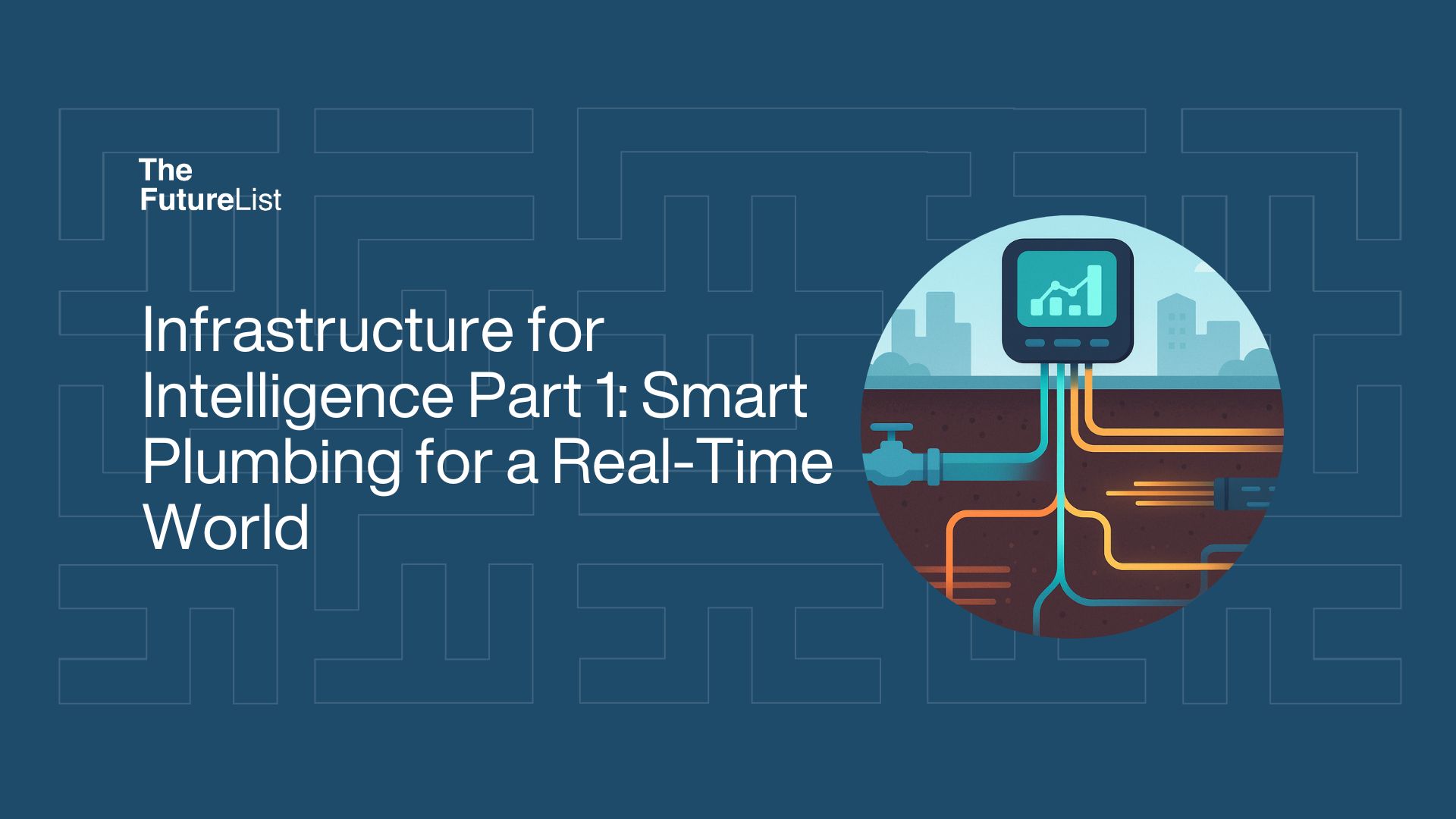
Infrastructure for Intelligence Part 1: Smart Plumbing for a Real-Time World
By David Armaah
In this new multi-part series, Infrastructure for Intelligence, we explore the invisible systems that power the world’s smartest innovations, from utility grids and water systems to health diagnostics and urban networks.
Each part dives into a different theme, spotlighting the startups building the foundational infrastructure that enables real-time, intelligent decision-making at scale. Whether you’re in tech, policy, or operations, this series is about the behind-the-scenes systems turning data into action and why they matter more than ever.
In today’s Infrastructure for Intelligence feature, we look at how “smart plumbing” is reshaping the way cities and utilities manage water from real-time leak detection to intelligent wastewater systems. Let’s dive in.
How are startups building the invisible systems powering smarter utilities, cities, and services?
In today’s innovation economy, it’s easy to spotlight shiny apps, flashy interfaces, and consumer-facing AI. But beneath the surface, there is one that’s just as vital. Call it the “smart plumbing” of our modern world: the back-end infrastructure that gathers, moves, cleans, and translates data into real-time intelligence.
This is not just digitization. It’s about building adaptive, always-on systems that can sense and respond to the world around them. Whether it’s a utility grid adjusting to peak demand, a city predicting flooding, or a healthcare platform syncing field diagnostics, the common thread is clear: data pipelines are the new lifelines.
And startups are leading the charge.
1. Terrascope – Carbon Management as Infrastructure
What they do: Terrascope offers an end-to-end platform for enterprise carbon measurement, monitoring, and mitigation. What makes it infrastructure? It plugs into supply chains, finance systems, and operations to give real-time emissions insights, not just reports.
Why it matters: As ESG regulations tighten, carbon intelligence needs to live inside operations, not on the sidelines. Terrascope turns sustainability into a data stream with APIs, integrations, and automation that make it actionable.
Lesson: Smart infrastructure isn’t always physical. Sometimes it’s a software layer that redefines accountability at scale.
2. Fathom – AI-Powered Decisioning for Water Utilities
What they do: Fathom built a cloud-based customer and infrastructure management platform for water utilities, enabling billing, leak detection, and asset management from one intelligent dashboard.
Why it matters: Traditional utilities rely on siloed legacy systems. Fathom unified the stack, serving as a brain between metering hardware and municipal finance, improving transparency and performance.
Lesson: Modern infrastructure connects the physical and digital worlds, fusing sensors, billing, and analytics into one system of record.
Rethinking Innovation From the Bottom Up
We often think of innovation as something you interact with: a new app, a wearable, a chatbot. But more often than not, it’s what you don’t see, the systems that make other things possible, that matter most. Smart plumbing means smarter cities, more efficient utilities, and more resilient societies.
Startups that focus on infrastructure aren’t just enabling products. They’re building the conditions for progress, laying digital highways.
Get innovation insights from The FutureList weekly. Subscribe to our newsletter here
Categories
- Agritech
- Artificial Intelligence
- Biotech
- Blockchain
- Climate Tech
- Data Infrastructure
- Edtech
- Events
- Fashion
- Fintech
- Healthtech
- Infrastructure
- Innovation Memos
- Innovation Scout Program
- Insight
- Insurtech
- Machine Learning
- Martech
- Mobility
- Music and Media
- Partner Offers
- Perks
- Procurement
- Proptech
- Retailtech
- Ridehailing
- Ridesharing
- Robotics
- Space Aviation
- Supply Chain
- Talent
- Telecoms
- Uncategorized
- Venture Capital
- Wastetech
- Women In Tech
Recent Posts
- Smart People: A core pillar for Smart Cities
- Infrastructure for Intelligence Part 2: Smarter Water Pipes for a Real-Time World
- Infrastructure for Intelligence Part 1: Smart Plumbing for a Real-Time World
- Mapping the Hidden City with Underground Digital Twins
- Silicon Moves Closer to the Sensor in Industry 4.0